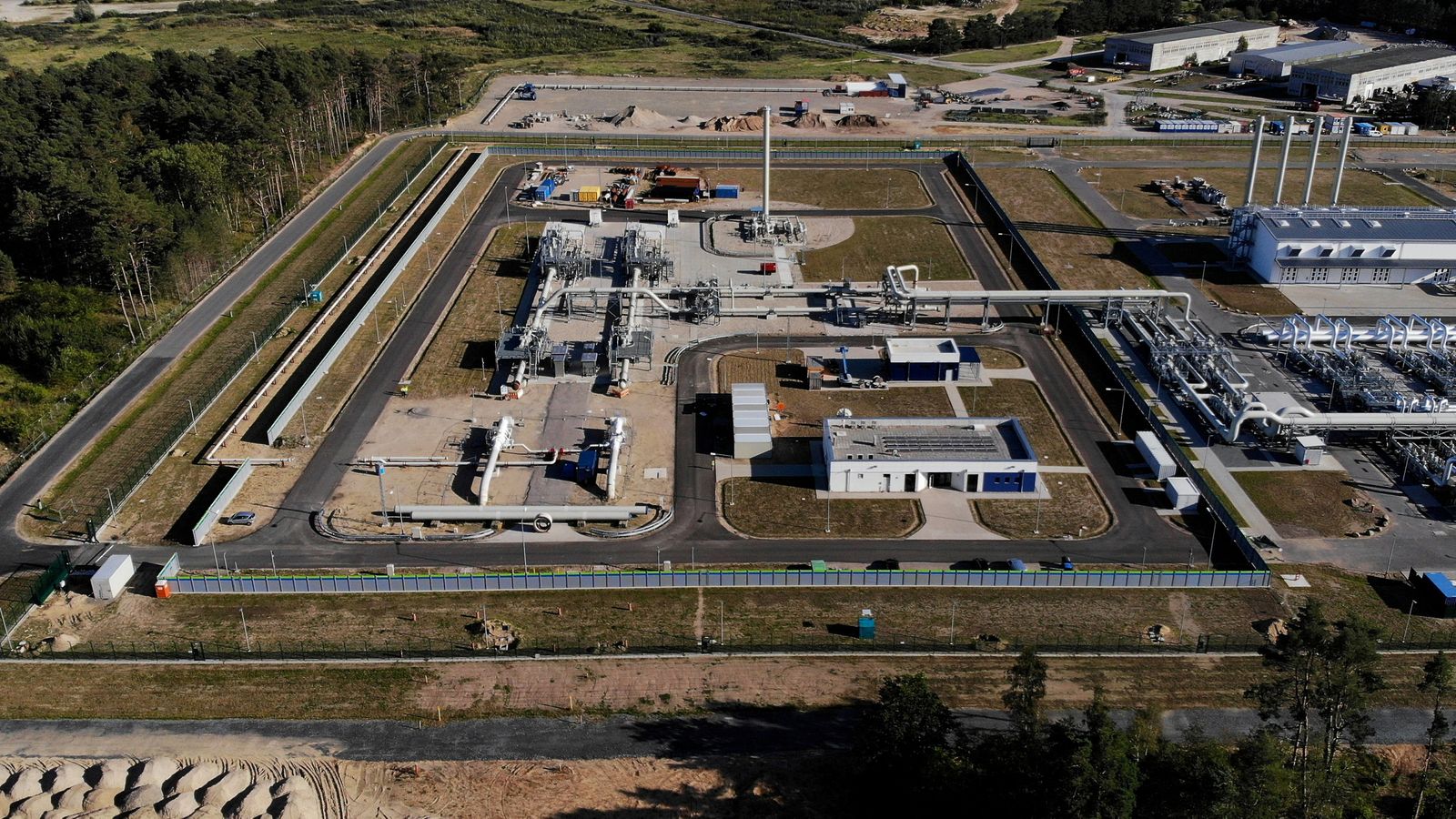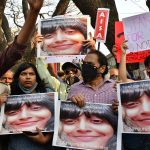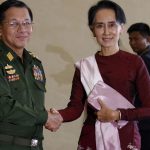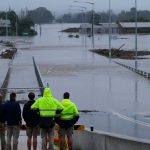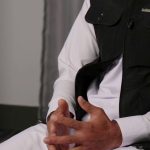Germany has halted the approval of the Nord Stream 2 gas pipeline in response to Russia’s actions in Ukraine.
Chancellor Olaf Scholz said the country has ordered the withdrawal of a key document needed for certification of the pipeline from Russia.
It comes after Russian President Vladimir Putin declared he recognises the independence of two separatist-held regions in eastern Ukraine – Donetsk and Luhansk – and sent in troops.
Please use Chrome browser for a more accessible video player
The pipeline bringing natural gas from Russia to Germany has long been criticised by the United States and some European countries who argue that it increases Europe’s reliance on Russian energy supplies.
Mr Scholz said his government had decided to “reassess” the certification of Nord Stream 2, which hasn’t begun operating yet, in light of the latest developments.
He had previously been hesitant about committing the pipeline to any sanctions package, despite longstanding pressure from Ukrainian officials.
Germany: One person dead and several injured after commuter trains crash near Munich
Ukraine still wants NATO membership after confusion it might back down to avoid Russian invasion
31-vehicle smash as drunk truck driver crashes through red light and sets home on fire in Germany
EU to decide on sanctions
Foreign ministers from EU countries are meeting today to make a decision about what sanctions to impose, according to the bloc’s foreign policy chief Josep Borrell.
The measures will be tough but incremental, EU ministers said.
Please use Chrome browser for a more accessible video player
The package being considered includes banning the trade in Russian state bonds in the European market and kicking the break-away regions in eastern Ukraine out of a free trade deal between the EU and Ukraine, according to an EU Commission source.
It also comprises sanctions on several hundred members of Russia’s state Duma who voted for the recognition of the Donetsk and Luhansk, as well as on companies and banks involved in the financing of separatist activities in the regions.
A senior EU diplomat previously said there was “a whole escalation ladder, starting with Russian individuals and moving up to finance, trade, and eventually energy”, adding: “A lot is possible.”
“We’ve got to ensure that whatever happens, Russia will feel the pain,” said Irish EU affairs minister Thomas Byrne.
US and UK set to impose sanctions
The White House also said the US would announce fresh sanctions on Tuesday.
President Joe Biden already signed an executive order prohibiting “new investment, trade, and financing by US persons to, from, or in” the two breakaway regions.
Please use Chrome browser for a more accessible video player
The order will “also provide authority to impose sanctions on any person determined to operate in those areas of Ukraine”. And there will be further measures separate from sanctions that the US and its allies have been preparing if Russia invades Ukraine.
UK Prime Minister Boris Johnson said Mr Putin has broken international law and said the UK will hit Russia with a “first barrage” of sanctions which he will outline later today.
Read more:
As warnings of war grow, fear is also being felt in neighbouring Poland
Officials in Russian-backed regions press-gang older men into their militias
Kyiv volunteers stock emergency shelters amid warnings of imminent invasion
How big is Russia’s military – and how does it compare with Ukraine?
In a phone call with Ukraine’s president, Mr Johnson “said he would explore sending further defensive support to Ukraine, at the request of the Ukrainian government” – but Health Secretary Sajid Javid said the UK would not deploy troops to the country.
Japanese Prime Minister Fumio Kishida said his country would discuss possible “severe actions”, including sanctions, with the international community, while Australian Prime Minister Scott Morrison said “the moment that other countries put in place strong and severe sanctions on Russia, we will be in lockstep with them and we will be moving just as quickly.”
What’s Russia’s response?
The Kremlin said Russia is still open to diplomacy and further talks with the US.
Russian foreign minister Sergei Lavrov dismissed the sanctions as a predictable move.
“Our European, American, British colleagues will not stop and will not calm down until they have exhausted all their possibilities for the so-called ‘punishment of Russia’,” he said.
“They are already threatening us with all manner of sanctions or, as they say now, ‘the mother of all sanctions’.
“Well, we’re used to it. We know that sanctions will be imposed anyway, in any case. With or without reason.”
